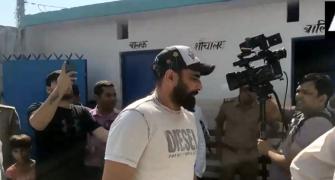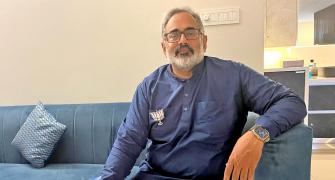Drilling for oil is a risky business because after spending millions of rupees the borewell may turn out to be dry.
To reduce the risk, scientists at the Oil and Natural Gas Commission say they are using a special army of microbes as a guide to identify the right places for drilling.
Called microbial prospecting, the method rests on a 50-year-old finding that an oil reservoir lets out tiny amounts of methane, propane, butane and other light hydrocarbon gases which seep upward to the ground surface. Some specialised soil microbes feed on these gases and grow.
Presence of any one of these gas-gulping bacteria is an indication of oil directly below, scientists told a conference on geochemical prospecting that concluded in Hyderabad on Sunday.
Microbial prospecting by itself is not enough to identify an oil basin. "But when used in conjunction with conventional seismic and geophysical methods, it increases the predictive accuracy from 35 per cent to over 80 per cent," A K Jain of ONGC Institute for Petroleum Exploration in Baroda told the conference.
This amazingly simple method has worked wonders elsewhere in the world and ONGC has taken this programme in a big way.
Jain said the entire Himalayan foothills and every known oil basin in India has been surveyed, covering a total area of over 6,000 square kilometres.
The survey threw up nearly 400 microbial "anomalies" or potential sites for drilling.
He said ONGC intends to eventually sequence the DNA of these microbes and come out with a universal genetic probe that can be used for microbial prospecting anywhere in the world.
"The methodology is equally effective in on-shore and off-shore oil prospecting," D Schumacher of The Geomicrobial Technologies Inc of Oklahoma in the United States told the conference.
Another advantage is that it costs less than other methods.
Schumacher said his company has used this method to locate oil and gas in Brazil and Mexico. One drawback with this method is that it is not as rapid as conventional methods since the microbes collected from the soil have to be incubated.







